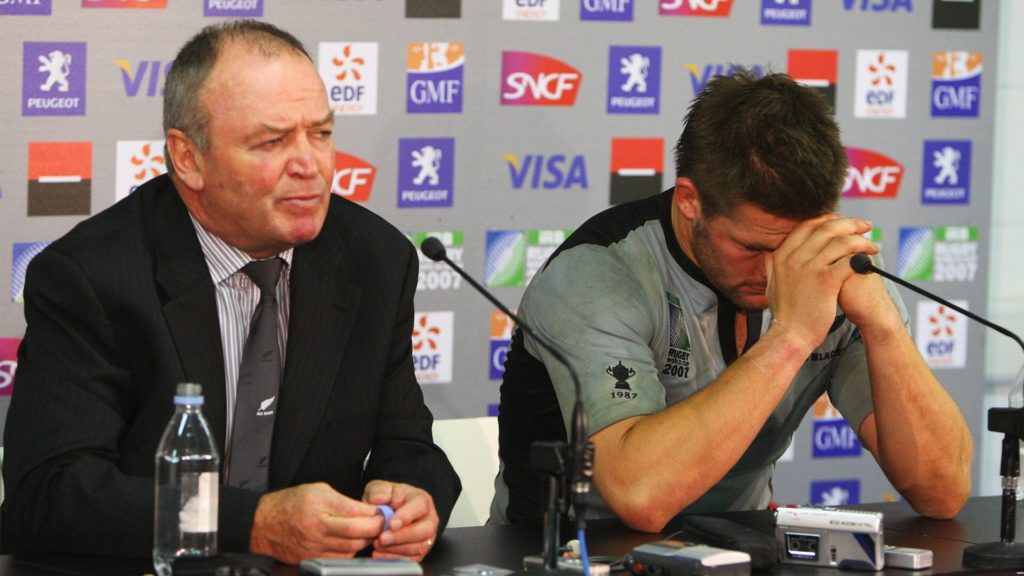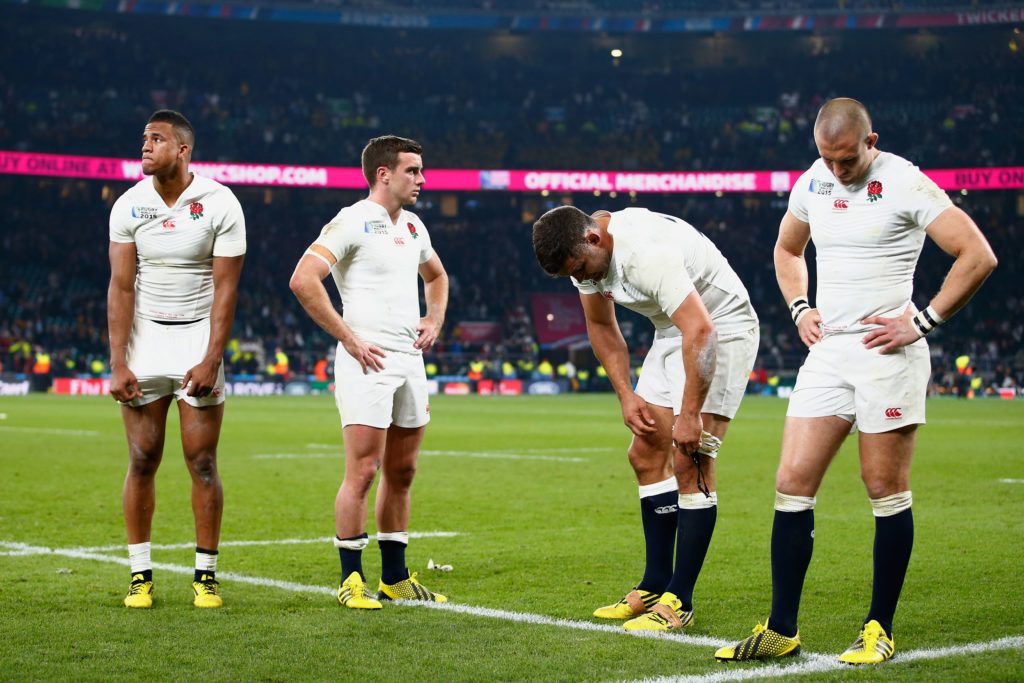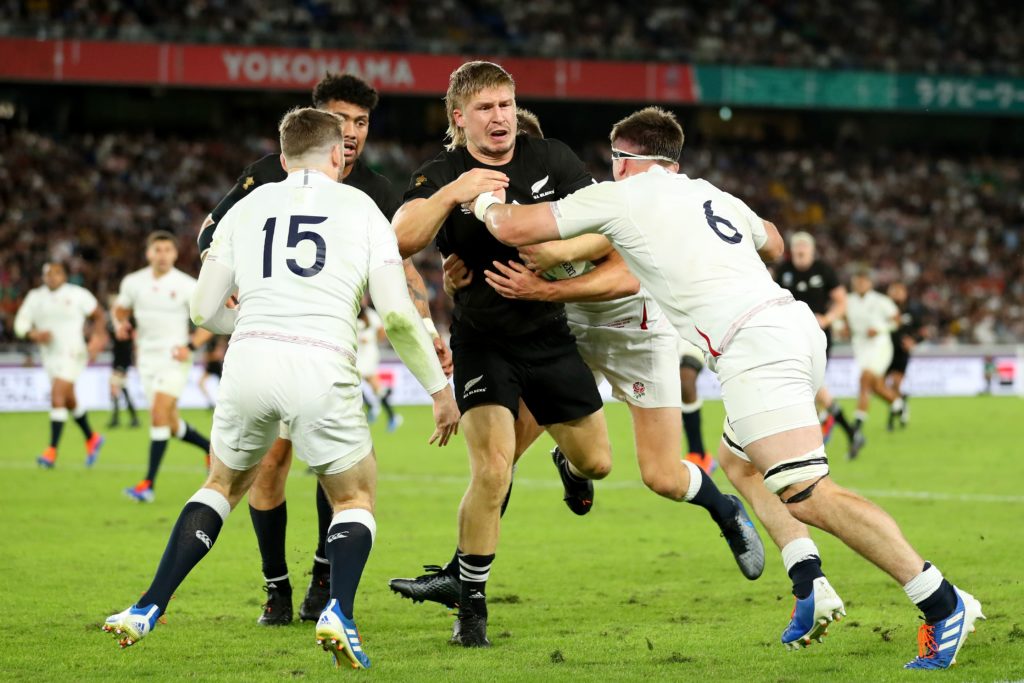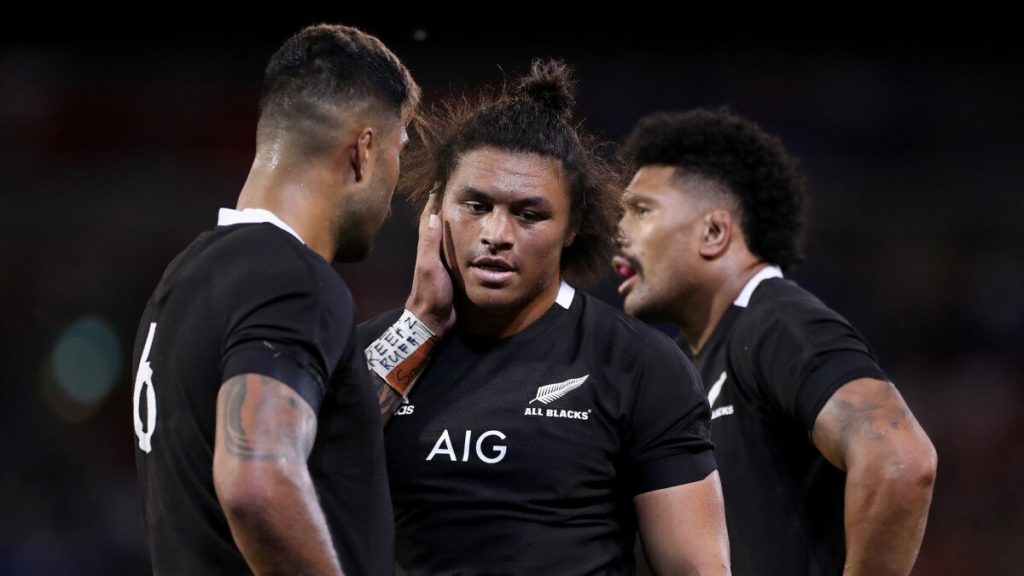In the wake of the All Blacks’ World Cup semi-final loss in 2019, coach Steve Hansen lamented the lack of adversity his side had encountered prior to that night in Yokohama.
He was a big believer in the power of personal pain as a motivator, having seen how the catastrophic loss to France in the 2007 World Cup quarter-final had driven the likes of Dan Carter, Richie McCaw Keven Mealamu and Conrad Smith to greater heights.
One terrible night in Cardiff 2007 led to the All Blacks winning the 2011 and 2015 World Cups.
Hansen and the players involved are adamant about that: adversity shaped that group of All Blacks and it was the fear of humiliation that drove them between 2008 and 2015.
McCaw in particular was determined to never again feel the way he did that night his team collapsed against the French.
His leadership was questioned by everyone after that loss and the story of failure was not one that he felt should sit in his personal career narrative.

Come 2011, half the All Blacks squad that lost in 2007 ran out to play the World Cup final at Eden Park and in the end, the difference between the two teams was desperation.
France were hungry, but the All Blacks were that little bit hungrier and had that imperceptible something that allowed them to scrap that tiny bit harder and find a way to cling to their one-point lead.
That fuel was still running freely through the system in 2015 as again, the majority of the All Blacks’ squad that played in England had been in France eight years previously.
But come 2019, there were no survivors from 2007 and few players in the squad had known any real sense of loss.
Hansen and the players involved are adamant about that: adversity shaped that group of All Blacks and it was the fear of humiliation that drove them between 2008 and 2015.
Between 2012 and 2019 the All Blacks only lost 10 tests. They won six Rugby Championships, a World Cup, retained the Bledisloe throughout that period, posted a perfect season and set a world record of consecutive test victories.
The only real blip prior to the World Cup was the drawn series with the British And Irish Lions and come that semi-final against England in Japan, the All Blacks didn’t have that collective hurt to tap into.
Whereas England probably did, reckoned Hansen. Most of their 2019 squad had been involved in the disastrous campaign of 2015 where they didn’t make it out of the pool at their own tournament.

Just as the pain of adversity had separated the All Blacks from France in 2011, it was the difference between England and New Zealand in 2019.
As Hansen said the day after the All Blacks had lost 19-7 to England: “For the young guys, and to be fair for the old guys, there has not been a lot of adversity,” Hansen said.
“For 12 years we have been reasonably successful game after game after game. We have dropped, maybe, 10 games now…over 104 or 105 which is pretty amazing in itself.
“But what that does do is take away all those guys who have felt the pain. 2007 has earned us two World Cups because it has created a real pain that’s personal and deep inside you. Until you suffer that yourself and it becomes personal, you don’t know what people are saying.”
The theory is that the deeper the pain, the more likely it is to be useful down the track and in that regard, 2020 should be considered a great year for the All Blacks.
2007 has earned us two World Cups because it has created a real pain that’s personal and deep inside you. Until you suffer that yourself and it becomes personal, you don’t know what people are saying.
Steve Hansen on the loss to England
The simplest way to put this is that they have had too much of a good thing in the last decade.
A whole generation of players – such as Sam Cane, Beauden Barrett, Brodie Retallick, Dane Coles – came into the All Blacks in 2012 and barely lost. They lived next to the likes of McCaw and Carter who were fuelled by personal pain, but this next generation didn’t have any adversity of their own to draw upon.
At some point that was going to be a problem – and as we know that point was the 2019 World Cup semi-final.

But now they have that necessary pain. Now they have the loss against England and the first ever defeat to Argentina to deepen their sense of angst and hunger. And while it felt at the time that the All Blacks were imploding, that 25-15 loss could well be the making of Ian Foster’s team.
The Pumas may have surprised the rest of the world with the way they played that day in West Sydney, but the All Blacks knew what would be coming at them.
They had seen how Argentina’s best performances in the last decade had come at World Cups – the only time that the squad was together for a prolonged period.
The Pumas are the most travelled team in the world and being together, in one place, suits them no matter the backdrop. So the fact Argentina hadn’t played for more than a year didn’t lessen New Zealand’s sense of approaching danger.
Consistency is missing with this group at the moment and it’s something we’re striving for and really going to work hard to get.
Ian Foster on what the All Blacks were missing in 2020.
They knew Argentina would come at them hard and for 80 minutes and they didn’t for a second underestimate the challenge. And yet the All Blacks didn’t have any answers
“I’d have to say I’m pretty satisfied with the campaign,” Foster told Sky Sports’ The Breakdown. “I thought we showed how good we can be. We won two trophies. But there’s also the lows, and particularly the Argentina game, that were really, really frustrating. So it showed that consistency is missing with this group at the moment and it’s something we’re striving for and really going to work hard to get.
“2020 gave us some fantastic experience and fantastic [lessons] and I’m sure that Brisbane game and Argentina game will hold us in good stead going forward.”
In New Zealand the headlines were all predictably grim – The XV included, with a piece entitled ‘End of an empire’.
Yet, as much as that defeat signalled the end of something, so too did it mark a beginning.

Every great side has to endure a period of uncertainty and difficulty before they emerge as a serious contender.
England failed at the 1999 World Cup and blew three Grand Slam opportunities before they finally succeeded in 2003.
South Africa were hammered 57-0 in New Zealand in 2017 – a defeat that humiliated them and forced a coaching change and massive rebuild ahead of the 2019 World Cup.
Ireland bombed out of the 2015 World Cup and then beat the All Blacks the following year before doing it again in 2018 and moving to world number one in 2019.
Adversity is the creator of greatness. It needs to be experienced so that teams can grow and learn from it – build their individual portfolios of personal pain – and while the All Blacks are indeed more vulnerable and volatile than they have been at any time since 2012, the rest of the world should be quietly fearful that they are rebuilding towards another peak.
If we look back in time, McCaw’s side not only lost in the quarter-final in 2007, they lost four tests in 2009 and struggled to find their cohesion and consistency until the bulk of the squad had played 30 tests or more.
While the All Blacks are indeed more vulnerable and volatile than they have been at any time since 2012, the rest of the world should be quietly fearful that they are rebuilding towards another peak.
It was through hardship and struggle that they learned the art of winning under pressure and closing out tight games. They had to lose a few to learn how to win and the team collectively grew through those turbulent years just as it seems the current crop may be ready to do the same thing.
There is now significant personal pain locked into the key players. There are also a number of players – Richie Mo’unga, Jack Goodhue, Patrick Tuipulotu, Nepo Laulala, Rieko Ioane and Jordie Barrett – approaching that all important 30-test mark.
Probably, the All Blacks need to suffer one more gut-wrenching defeat between now and the World Cup to really stoke their emotional engine.
But they might just have enough emotional fuel in the tank already and far from being the year that broke the myth about the All Blacks aura, 2020 may prove to be the beginning of another special period in New Zealand rugby history.


Comments
Join free and tell us what you really think!
Sign up for free